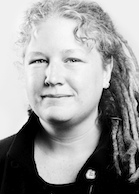Much of the ethnographic work that goes on at the VKS has been shaped by the tradition of ethnographic lab studies from Science and Technology Studies. These past couple of years, as the VKS has explored the humanities and e-research, these ethnographic methods have been adapted. A number of conference presentations and publications (this one and this one, among others) on this topic have been the result.
An upcoming contribution in Social Studies of Science is called from From Co-location to Co-presence. Here’s what it’s about:
As STS scholars increasingly study forms of knowledge production where the space of the lab (or similar locale) is much less central, other ways of conceptualizing the field may be especially useful for ethnographic research. In particular, ethnographic approaches must loosen their grip on co-location as a necessary requirement for ‘being in the field’, if they are to consider important issues about knowledge production that arise in fields, such as those in the humanities or e-research. Key STS topics, like new forms of authoritative knowledge, the changing shape of scientific work, and dynamics of innovation can be explored through ethnography. But in order to do so, the ethnographic approach must adapt in order to study these fields in which research practices are not concentrated in lab-like spaces.
By using co-presence rather than co-location as a starting point to conceptualise and articulate fieldwork, new aspects of knowledge production are foregrounded in ethnographic studies. This research note proposes and discusses co-presence as an epistemic strategy that pays close attention to non-lab based knowledge production; that can embrace textuality, infrastructure and mediation; and that draws into relief the role of ethnographer as author, participant-observer and scholar.
Because it does not assume the centrality of shared space, the notion of co-presence can be useful in ethnographies of e-research, as well as of other fields in the sciences and humanities that involve highly mediated forms of research or where the lab does not figure so prominently.
This work was discussed at the workshop In the Game, held in Copenhagen last October as an AoIR pre-conference workshop.


 nd will soon reveal the date of the next meeting!
nd will soon reveal the date of the next meeting!